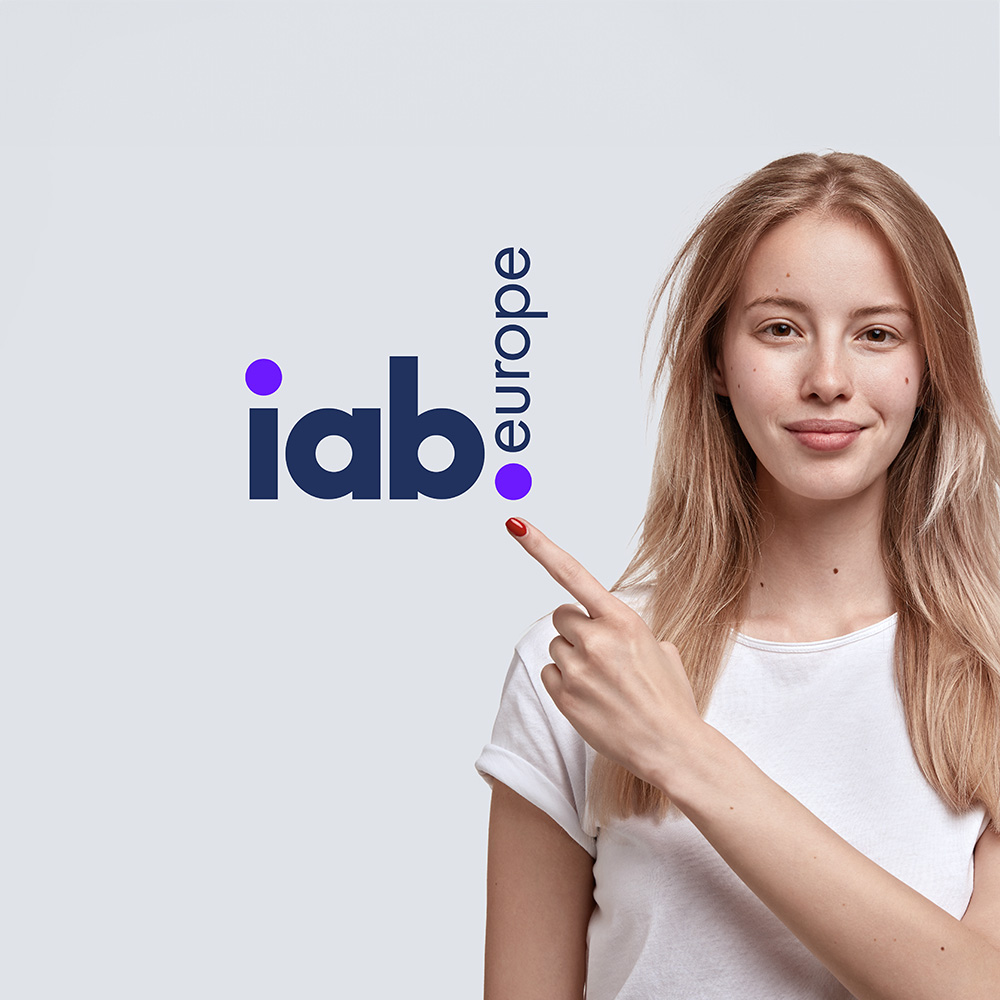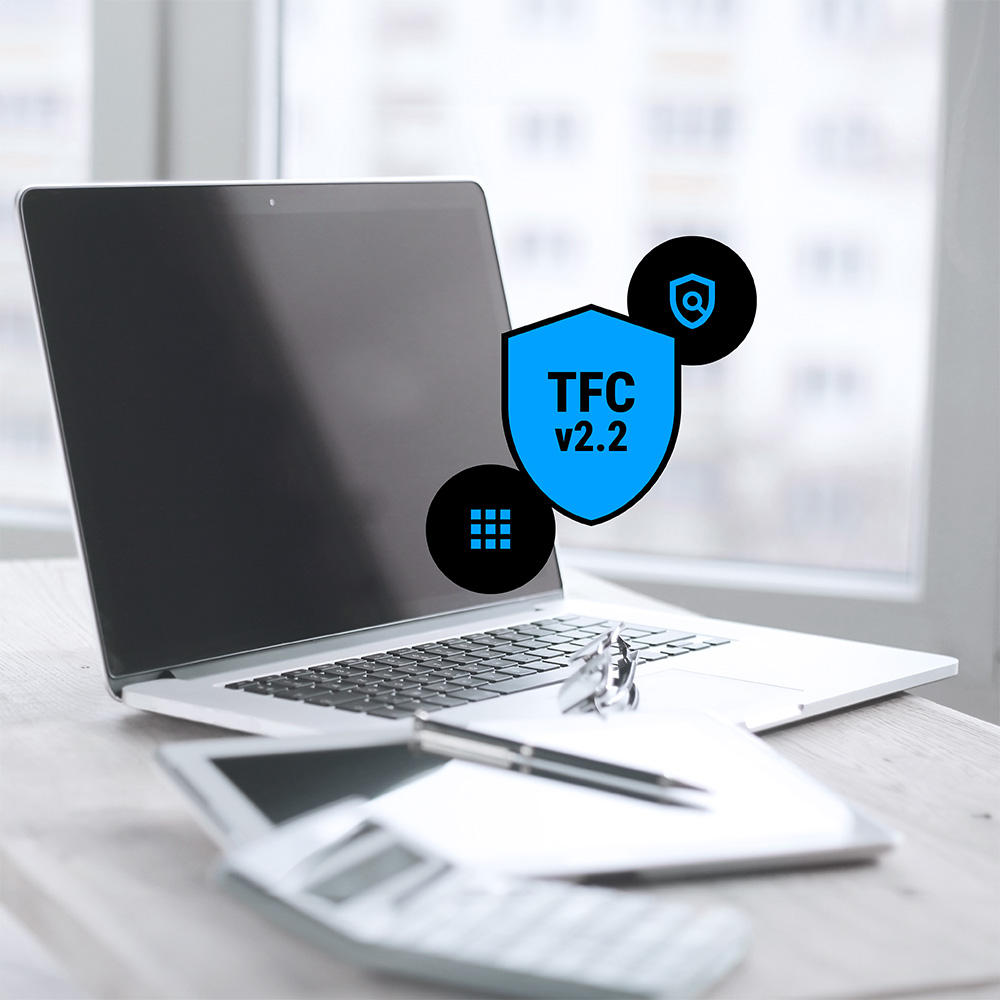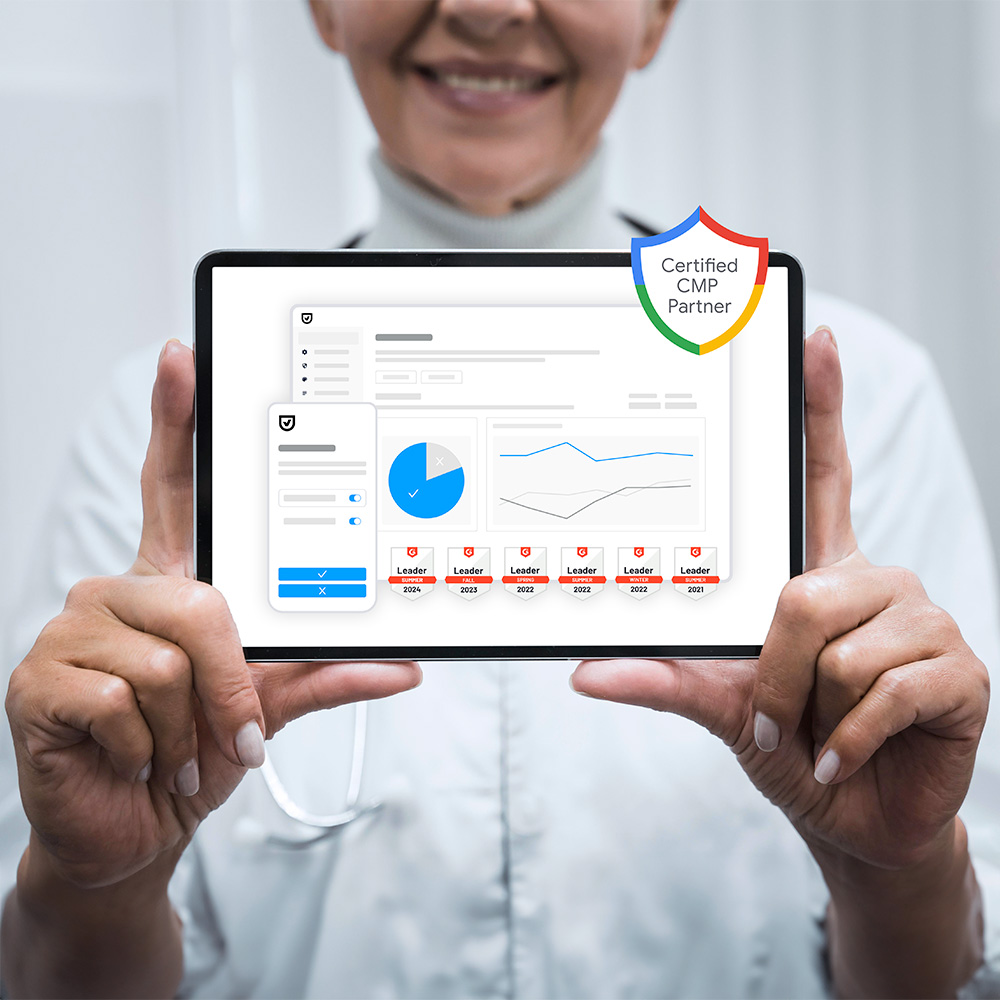Secure your ad revenue with the TCF v2.3
Do you monetize your website or app with ads?
If you’re earning ad revenue in the EU/EEA or UK, you’re operating as a publisher. So you need a Google-certified Consent Management Platform (CMP) that supports the IAB Europe Transparency & Consent Framework (TCF) v2.3.
In addition to maintaining privacy compliance, the TCF v2.3 is essential to protect your access to ad inventories and revenue. Advertisers and ad tech partners now require valid user consent before delivering personalized ads. Usercentrics CMP makes it simple to collect, manage, and signal valid consent to protect and boost your ad monetization.
Common TCF V2.3 QUESTIONS AND ANSWERSWhat do publishers need to do?
Protect ad revenue with transparent, privacy-safe advertising
IAB Europe’s TCF v2.3 is now the industry standard to collect, manage, and share user consent for targeted advertising. Publishers, advertisers, and tech vendors can seamlessly communicate consent signals across the digital ecosystem. Protect your access to ad inventories and monetization, strengthen user trust, and future-proof your ad strategy as markets become more privacy-focused. The TCF v2.3 compliance deadline is February 28, 2026.
Explore our TCF v2.3 documentation
learn more
Curious how Usercentrics Server-Side Tagging fits your stack or use case? Talk directly with the people who built it — no fluff, just answers.


Learn more
Frequently asked questions
IAB Europe is the European-level association of the Interactive Advertising Bureau (IAB) to serve the digital marketing and advertising ecosystem. Its membership is made up of individual countries’ IABs, as well as marketing, media, and technology companies.
IAB Europe’s mission is to lead political representation and promote industry collaboration to deliver frameworks, standards, and programs to enable businesses to thrive in the European market.
The TCF v2.3 is a smaller update than the TCF v2.2 was, but does introduce key adjustments to strengthen transparency and privacy compliance.
Disclosed Vendors become a mandatory segment in TCF signals, enabling vendors to determine if they’re allowed to process data under Special Purposes. Starting February 28, 2026, all new or updated consent signals must include the Disclosed Vendors segment. Existing consent signals created before February 28, 2026, without the v2.3 format, will remain valid until the user updates or renews their consent preferences. There is no requirement to resurface the CMP to all users.
Whether you want to use the TCF v2.3 for your online monetization practices is optional, however participation is required by some advertisers and demand partners so it’s highly recommended if you serve online advertisements. In addition, Google requires the use of TCF v2.3 with a Google-certified CMP for all publishers using their services, like AdSense, Ad Manager and AdMob, in the EU/EEA and UK.
The compliance deadline for the TCF v2.3 is February 28, 2026.
Note that for publishers and developers using Google services, like AdSense, Ad Manager, or AdMob in the EU/EEA or UK, Google’s deadline was January 2024. Qualifying publishers need to use a Google-certified CMP that supports the TCF v2.3.
If you serve digital advertisements on your website or apps to audiences in the EU/EEA or UK as part of your monetization strategy, you need the TCF v2.3. It’s for all organizations involved in online advertising that collect and process end users’ personal data. This can include website owners, publishers, vendors, and others.
Yes, in May 2023 Google announced that they would require publishers using Google AdSense, Ad Manager, or AdMob to use a Google-certified CMP that integrates with the TCF when serving ads to users in the European Economic Area or the UK.
The Usercentrics CMP has TCF v2.3 integration and has been certified by Google as a consent management platform that publishers in the EU/EEA or UK can use to meet Google’s requirements.
Google’s objective is to establish “a more unified and reliable approach to transparency and consent” and “a more privacy-conscious digital advertising ecosystem.”
Not all of the services and vendors your organization works with may use the Framework. Which means it’s even more important that you control what data they can access. Usercentrics CMP enables you to collect user consent preference information for them to help ensure privacy compliance.
With Usercentrics, you have access to a database of more than 2,200 categorized and described technology vendors and data processing services. You can also add as many custom services and vendors as you like. They will all be added in the CMP interface so users can opt in or out of personal data access by any vendor, whether a TCF user or not.
Implementing the TCF v2.3 does not, on its own, make an organization GDPR-compliant, but it can help to meet a number of the regulation’s requirements regarding informing users, supplying the choice for a legal basis for data processing, and obtaining valid consent.
Not at all. Implementing the TCF 2.3 can help increase ad revenue. Publishers gain more control and flexibility in determining legal basis for vendors they work with. This way, they can ensure privacy-compliant data processing while continuing to generate ad revenue.
The Framework also helps organizations to build trust with users via transparency and choice, encouraging higher engagement with ads, knowing their privacy is respected.
With the TCF v2.3, the IAB continues to support their main initiative: encouraging adtech vendors, publishers, and agencies to comply with the GDPR when processing personal data or accessing and/or storing information on a user’s device.



